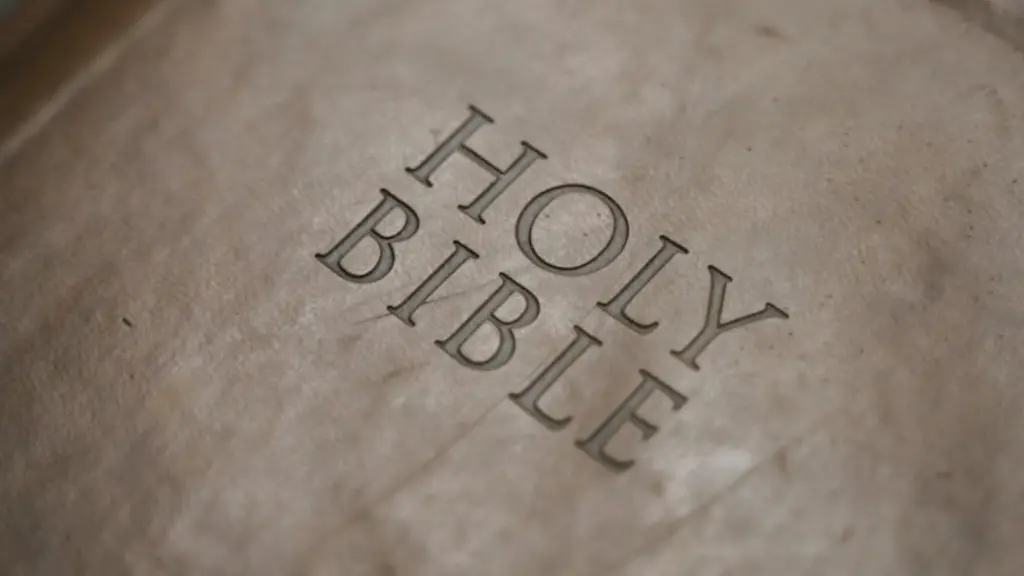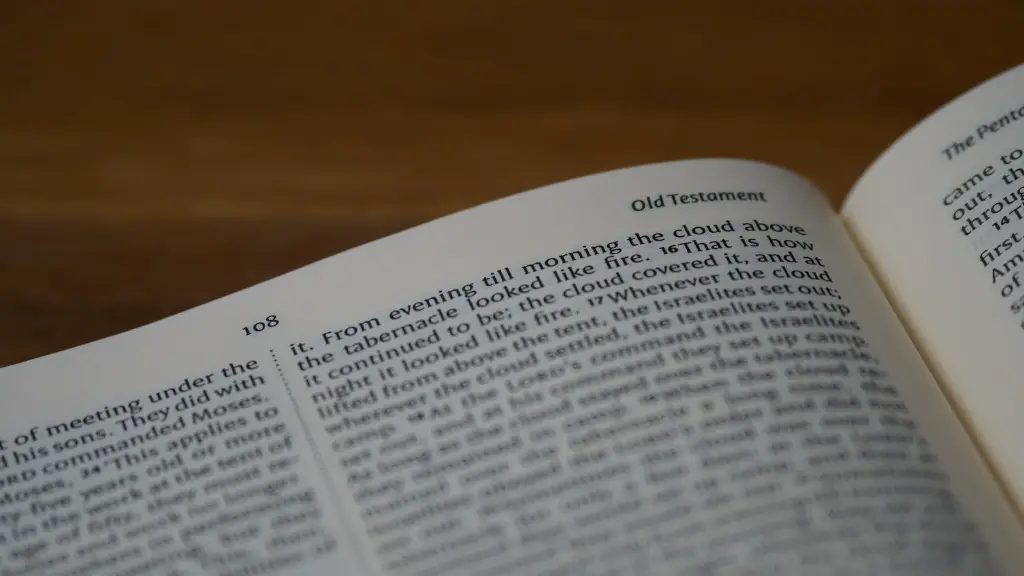Many people claim that the Bible is a book of faith, but is it really true? The Bible has been around for centuries, in many different versions and manuscripts, some of which are still used today. The credibility of the Bible is something that has been discussed and debated throughout history, and even today it is still highly discussed and debated. To answer the question of how do you know the Bible is true, one must look at the evidence that the Bible provides us.
The first piece of evidence comes from the Bible itself. The Bible gives us an accurate historical account of events and individuals, from the creation of the world to the time of Jesus Christ. These events have been corroborated by other historical accounts, fulfilling one of the most basic tests for truthfulness. This is one of the reasons why many contemporary scholars, despite different religious beliefs, view the Bible to be reliable.
The Bible also provides us with scientific evidence, which further supports its validity. For example, when speaking about the creation of the universe, the Bible describes the earth as “without form and void,” and “the Spirit of God moved upon the face of the waters.” This is remarkably similar to current scientific theories about the big bang and the formation of the universe.
In addition, the Bible provides us with moral values, which have been upheld for centuries and are still seen as truth today. These values are so deeply embedded in our society that we often take them for granted. From teaching about love, compassion and forgiveness to endorsing moral laws such as not harming others, the Bible provides us with an invaluable source of standards and goals to strive for.
The Bible also contains prophecies that have been fulfilled, which provides us with further proof of its veracity. Many of the prophecies were made centuries before they were fulfilled, and they were fulfilled precisely as they were written. The accuracy of these prophecies provide us with convincing proof that the Bible was written by someone much greater than a mere mortal.
The Bible is a book of faith, but there is something unique and undeniable about the evidence it provides. In answering the question “How do you know the Bible is true?” one must consider the evidence outlined above – evidence that has been accepted by scholars, historians, and everyday people alike.
The Bible’s Impact
The Bible has had an indelible impact on history, with its words playing a central role in everything from politics and religion to art and culture. Its words have inspired great works of art, sparked revolutions, and provided solace and comfort during times of distress. The Bible is the most widely read book ever written, and its influence on humanity is seen throughout history and across the world.
The Bible has had a profound impact on the way we think and act. Its moral message of love and compassion has been a cornerstone of many lasting traditions and values, while its stories are timeless, providing guidance and wisdom to people of all ages. Furthermore, its prophecies have been proven to be true in many cases, adding further proof of its divine content.
The Bible has sparked debates throughout history and has even been the cause of great strife at times, particularly in regards to politics. While its content has often been used to promote war and hatred, it can also be used to promote peace and acceptance. No matter one’s position on the Bible, its impact on history, culture and society is undeniable.
The Bible Today
In our modern society, the Bible continues to be an important and influential part of life. It is still the most widely read book in the world and its influence can be seen in popular culture and throughout history. The Bible is used in mainstream education, it is a cornerstone of many religious values and traditions, and it continues to provide spiritual enlightenment and solace to those who seek it.
Furthermore, the Bible still provides answers to many of life’s toughest questions and questions about faith. Its timeless stories and moral messages continue to provide hope for those who seek it, even in a turbulent and uncertain world. The Bible is one of the oldest and most enduring sources of wisdom and truth, and it will likely continue to be an important part of our lives for many years to come.
The Bible’s Critics
The Bible has also been criticized for centuries, and its critics have argued against its truthfulness and accuracy. They point out inconsistencies in the text, challenge its accuracy in predicting the future, and criticize it for its views on gender roles, social relationships and other aspects of life. These criticisms do not detract from the validity of the Bible; they are simply a reminder that the Bible is a complex text that must be interpreted thoughtfully and respectfully.
However, it is important to remember that the Bible was written long ago by society that was vastly different from our own. To truly understand the Bible and its teachings, one must approach it with humility and open-mindedness, recognizing that different people and different societies can interpret the same words in different ways.
Given its vast influence and complexity, it is no wonder that there are so many different interpretations of the Bible. One must approach its words and stories objectively, recognizing that the Bible could be seen differently through different lenses. Ultimately, one must recognize that the Bible is a sacred book, and its truth must be sought out and accepted with humility and faith.
The Bible’s Witnesses
Finally, the truth of the Bible can be witnessed through the millions of people who believe in its message and have been positively impacted by its teachings. There are countless stories of people whose lives have been changed and enriched by its words. They have experienced hope and joy, comfort in times of distress and hardship, and wisdom to make important decisions throughout their lives.
The Bible has also inspired people to do good in the world – to heal the sick, speak out against injustice, and bring peace to a troubled world. It has been a source of strength and courage, perseverance and justice, and it has provided hope and guidance to many people in need.
Ultimately, the truth of the Bible can be found in its witnesses – those who attest to its power and influence in their own lives. When one looks around and sees the positive impact it has had on the lives of people from all backgrounds and faiths, it is clear that the Bible is more than just a book of faith. It is a source of truth and hope, a living witness of the transformative power of its words.
The Bible’s Legacy
The Bible has been around for centuries, and its words have been passed down from generation to generation. Its stories and teachings have been interpreted in many different ways, and it continues to be a source of comfort and guidance for millions of people an around the world.
The Bible is a living testimony of its vast influence, and its words will continue to bring joy and comfort to people for many years to come. As long as there is faith, the Bible will remain a source of hope and solace, a testament to its eternal power and influence.
We may never fully understand the depth and beauty of the Bible, but we can still be sure of one thing: it is a book of truth and hope, and one that will continue to provide answers to life’s toughest questions for many generations to come.





